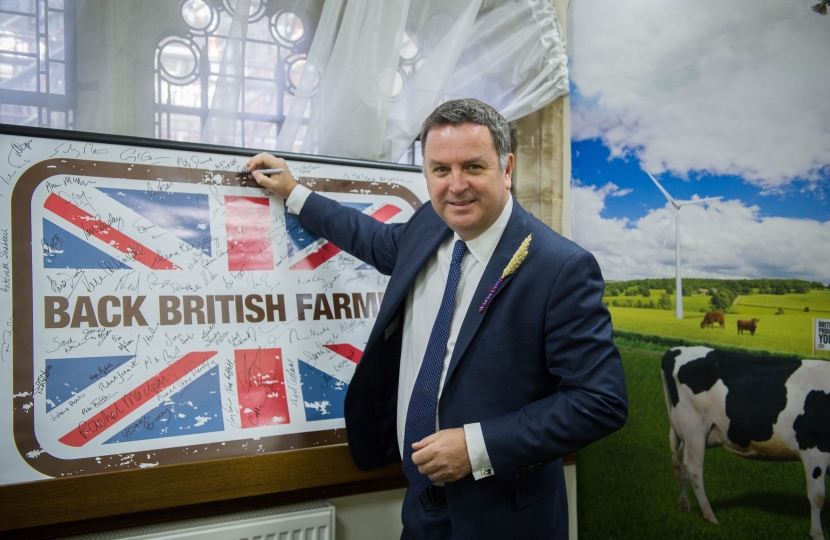
Last week I wrote about our teachers being among the unsung heroes of the coronavirus pandemic. Today I am writing about another - our farmers. They have worked tirelessly over the last two months to ensure our supermarket shelves remain well stocked - a difficult challenge amidst the unnecessary panic buying and stockpiling that occurred at the beginning of the pandemic.
Last week the Government's Agriculture Bill completed its initial passage through the House of Commons. It is a crucial piece of legislation and I am encouraged that it has been made a priority at a time when parliament's attention has rightly been extensively on the virus.
The Bill has may aims but focuses mainly on three key areas. Firstly, it seeks to boost domestic food production (the importance of which has been underlined in the past two months) through investing in new technology and research. Secondly, it will provide support for our farmers who have previously relied on EU Common Agricultural Policy (CAP) subsidies and will not only link subsidies to food production but also to the role that farmers play as custodians of our land, rivers, woodland and wildlife habitats. By putting a greater emphasis on environmental protections, the bill will help ensure our agriculture industry contributes towards our national mission of reaching net zero carbon emissions by 2050. Thirdly, the bill will protect and improve UK animal welfare standards. I was pleased to read the RSPCA's statement last Thursday welcoming these parts of the bill and stating that the proposed new measures "could improve the health and welfare of millions of farm animals and position England as a world leader for farm animal welfare".
As the bill passed through the Commons, various amendments were debated including one requiring trade deals to meet UK standards and thereby protect our farmers from potentially lower quality and cheaper imports. While I wholeheartedly agreed with the aim, I feared that the amendment brought with it unintended consequences. For example, it would require an assessment of all our trading partners' standards for those trade deals from which we benefit and for this to be completed by the end of December in order to allow for the rollover of these arrangements. I don't think this is realistic and if these trade deals are not rolled over, it could well be to the detriment of our farmers and others. The government has a manifesto commitment to uphold our standards and ensure that they are met by those that we trade with, and there will be a number of ways in which this will be achieved not least through the negotiation of future trading arrangements and associated parliamentary scrutiny.
I will be following the bill, which moves us towards a greener and more modern agriculture industry, very closely as it goes through committee.


